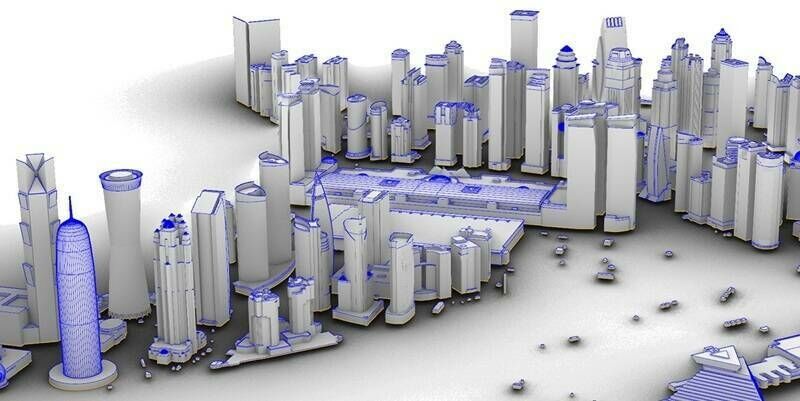14 December 2017: The Open Geospatial Consortium (OGC) is seeking interested Sponsors to define the challenges for Phase 2 of the successful Future Cities Pilot Project.
As the operation and planning of cities increasingly relies on 3D geo-information in their processes, and apply Building Information Models (BIM) paradigms to their information management approach, efficient information flow in both directions between geospatial systems (GIS) and the Architecture/Engineering/Construction (AEC) systems becomes increasingly important. This requires data to be interoperable, which requires common - and ideally open - standards.
Completed in 2017, the Future City Pilot, Phase 1 (FCP1) demonstrated that interoperability between CityGML and BIM Industry Foundation Classes (IFC) works well in practice, and showed clear benefits in three use cases: urban planning; social care; and flood modelling. However, to achieve success, a significant amount of manual intervention needed to be employed.
Phase 2 of the Future City Pilot (FCP2) aims to improve the automation of the flow of data, as well as address a number of related interoperability challenges, including:
- Comparing data conversion with data linking approaches;
- Looking at tools that consume both CityGML and BIM structured data;
- Data structures that support the seamless integration of GIS data and BIM data;
- Linking real-time sensor information with 3D City Models encoded as CityGML;
- Security models to protect the sensor readings, including Single-Sign On (SSO) methodologies to protect parts of the 3D City Model;
- Understanding where and how we must capture location and time information: the ability to correlate location in different coordinate reference systems (CRS) such as local, regional, global, and understand if, and how, the integrity of the location data has changed through that process (Survey4BIM use case); and
- Data linking to facilitate asset management over dispersed geographies.
A video summary of FCP1 is available here. The Engineering Reports documenting the main outcomes of FCP1 are available at www.opengeospatial.org/projects/initiatives/fcp1.
Sponsorship of the Future City Pilot will provide the following benefits to sponsoring organisations:
- Assess and affect market direction based on sponsor needs;
- Visibility as global leader in information technology critical to deploying smarter cities;
- Amplification of funding by multiple sponsors’ to solve common/similar problems;
- Leveraging effort up to 3.5 times based on participant in-kind;
- Accelerated process - workable interface specifications in 4-6 months;
- Follow-on procurements using standards-based architecture proven in the pilot;
- These Innovation Program pilots help feed into the consensus standards process of OGC’s Standard Program; and
- Leading the way to safer and more efficient cities.
There are three main deliverables resulting from an OGC pilot:
- Testing of running software from several organizations to ensure interoperability of the independently developed implementations based on open standards;
- Demonstration of policy-oriented scenarios with the deployed code. These scenarios show the previously unavailable capability from a non-technical point of view;
- Documentation of the results of the architecture, testing, and demonstration. The reports may then become the basis of procurement activities of the operational system.
The scope of this pilot as currently planned will include the demonstration of a common architecture and data model in multiple cities. The number of cities used for the demonstration will depend upon the sponsor requirements.
If you want an innovative solution to your organisation’s Geospatial & BIM data interoperability problem, OGC urges you to contact Bart De Lathouwer, Director of OGC’s Innovation Program
Subscribe to our newsletter
Stay updated on the latest technology, innovation product arrivals and exciting offers to your inbox.
Newsletter

